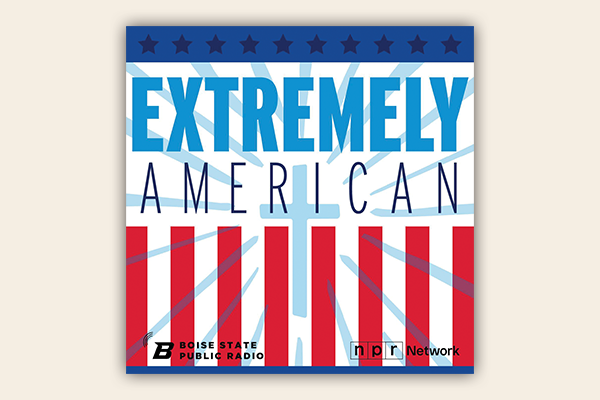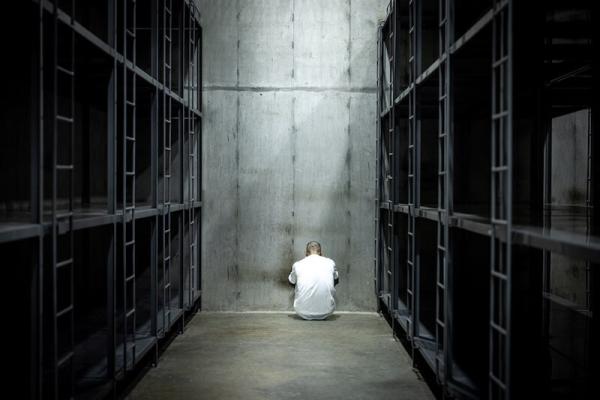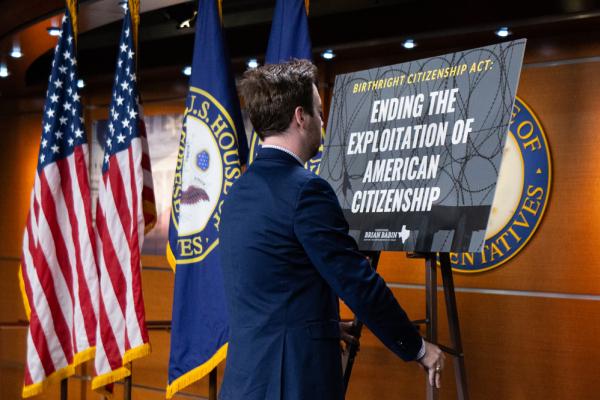I watched both of the Democratic presidential debates over the last two nights, waiting to see if anything related to the invisibility of Indigenous peoples would somehow make its way into the conversation. I didn’t expect it to, of course; in a nation that does not even begin its events with a land acknowledgement (like Canada, Australia, and other nations do), why would we expect that the experiences of the original peoples of this land would come into a debate when each candidate only has a limited time to respond?
And yet, it matters, because we as Indigenous peoples, as the original peoples of this land, matter.
When questions about police brutality come up, I think about the fact that per capita, Native Americans are more likely to be killed by police than any other demographic in the U.S. I think about missing and murdered Indigenous women, an epidemic that is destroying families across Indian Country (and has been for a long time), an epidemic that goes unnoticed in our government.
According to a report by the Urban Indian Health Institute:
The National Crime Information Center reports that, in 2016, there were 5,712 reports of missing American Indian and Alaska Native women and girls, though the US Department of Justice’s federal missing persons database only logged 116 cases.
So, as a Potawatomi woman, I think that we are just too removed from society to matter, that even when we live in urban areas, we are invisible. Why would we expect any presidential candidate to name us, to say, “You matter to me”?
So, I kept listening.
On issues of health care, we must consider how little resources Native Americans are left with to care for their own mental, physical, and even spiritual health. In a nation that punishes high schoolers for wearing their regalia to graduation and everyday citizens tell us a tomahawk chop at a ball game is “honoring,” our well-being should be part of every conversation for what it means to create a healthier America.
As a mother with children who are in the Medicaid system, I want to know that my children matter. As a mother who at one time was in the Women and Infant Children program (WIC), I know what it’s like to standing in the line at Wal-Mart and get stared down by the people around you, to get eyerolls and frustrated reactions from the cashier who realizes you grabbed the wrong bag of bread. We live in frustration and fear, and those experiences matter.
So, I kept listening.
When the conversations on climate change surfaced, I listened carefully as each candidate crafted an answer. I listened even closer when they began to name the organizations or people they would look to for help in this climate crisis, and not one of them named Indigenous people or Indigenous organizations.
If we are going to have conversations about what communities are affected by climate change, we must include Indigenous peoples in these conversations, like the Indigenous Environmental Network or Honor the Earth, among many. We must look back at Standing Rock and the continued fight that Indigenous peoples are leading against oil companies if we are going to talk about what it means to fight corporate greed.
If we are going to talk about protecting the land, we must treat her as someone worthy of being protected, as Indigenous peoples have been doing for centuries.
The U.N. Department of Economic and Social Affairs says the following:
Indigenous peoples are among the first to face the direct consequences of climate change, due to their dependence upon, and close relationship, with the environment and its resources. Climate change exacerbates the difficulties already faced by indigenous communities including political and economic marginalization, loss of land and resources, human rights violations, discrimination and unemployment.
As a nation that is a leader in the world politically, the rights of Indigenous peoples across the globe should matter. That includes the Indigenous peoples at our border.
If we really want to change things in America, as the Democratic Party is suggesting, we have to be more honest about our history, about what settler colonialism is and has done to oppress people with disabilities, women, Indigenous, black, and other people of color for centuries.
To be honest, we must know what settler colonialism actually is: a form of colonialism that seeks to replace the original population of the colonized territory with a new society of settlers.
This is the America we know, no matter what president sits in the White House.
I don’t want a candidate who only cares about the rights of Indigenous people, but I want a candidate who includes us in conversations that directly affect us.
America is grappling with its identity in the face of another election, and the answer is not to simply say that we must return to who we truly are. Who we truly are is a nation built on stolen land and greed, a nation that doesn’t acknowledge the bad fruit of its own bad deeds.
I will be watching the coming debates, as conversations focus in on what candidates really care about for the future of America. My hope is that native people don’t just come up because Elizabeth Warren took a DNA test to prove something she can’t prove; my hope is that we come up in these conversations because we matter and Segmekwe, Mother Earth, matters.
Nick Estes explains why political activism is inherent to Indigenous identity in his book Our History Is the Future:
… Indigenous peoples are political by default. They continue to exist as nations when they are supposed to have disappeared, and they have to fight, not only for bare survival, but also for accurate representation. They incarnate the inconvenient truth that the United States was founded on genocide and the continuing theft of a continent.
As an Indigenous person who cares about our political landscape, sometimes I wonder if it’s worth it to vote, and I wonder if the people I am voting in will have my best interests or the best interests of my Indigenous kin.
Because even those who go unnoticed are often the ones who hold extraordinary power.
Author’s Note: Follow #NativeVote20 to see how some Indigenous peoples are feeling about the debates so far.
Got something to say about what you're reading? We value your feedback!







